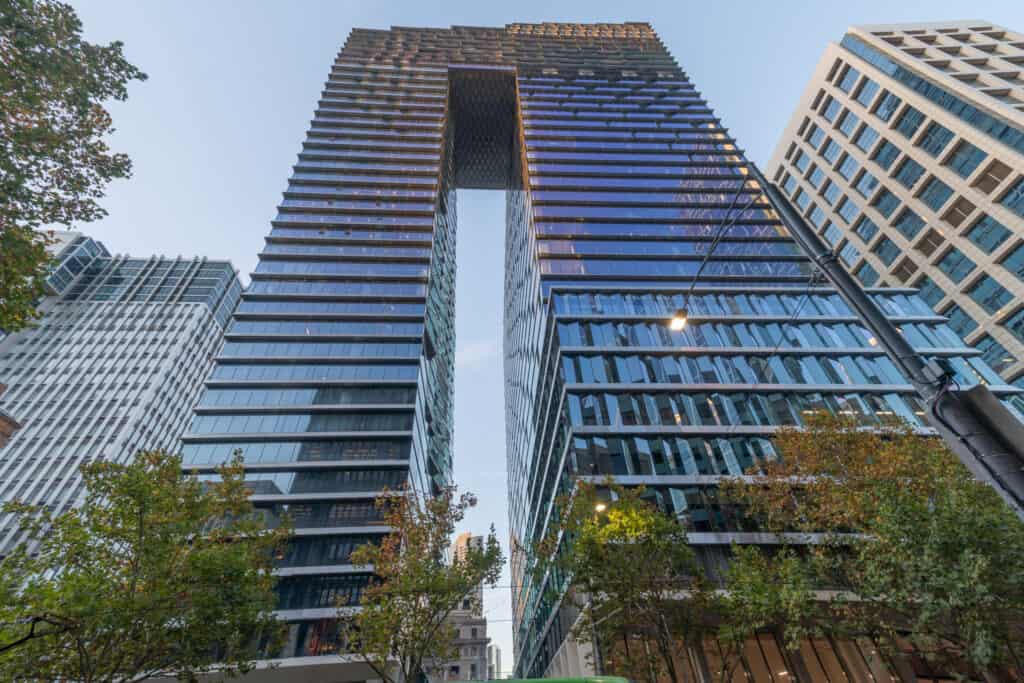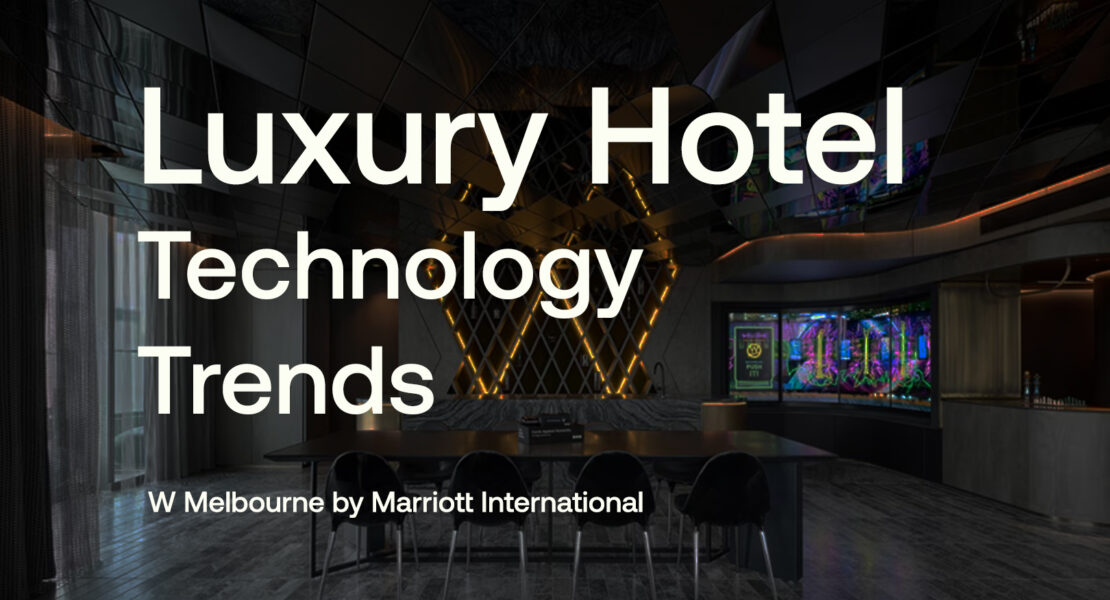The Hotel Technology Shaping the Future of the Industry
According to McKinsey & Co, who surveyed 5000 present-day travellers (2024), tourism and hospitality are experiencing a wave of growth, with more travellers seeking luxury accommodation and experiences.
Disruptive market forces, like the ubiquity of Airbnb properties across all major cities, and the operational restrictions following the COVID-19 pandemic, have created a highly competitive market for hotel operators.
Today, luxury hotels are seeking to differentiate themselves from the broader market and capture a larger share of global travellers by adopting cutting-edge technologies to enhance the guest experience.
With demand for luxury travel growing faster than any other travel segment today – particularly from Asia – our team has first-hand experience leveraging technology innovation as a vector for improved customer experience in major luxury developments in Melbourne and Sydney.
In Australia, the following technologies are leading the transformation of luxury hotels:
- Gigabit Passive Optical Networks
- Carrier Agnostic Distributed Antennae Systems (DAS)
- Agnostic entertainment streaming
- Software as a Service products
In this article, we explore these key technology trends and how they are shaping luxury hotel technology investments in Australia, enhancing both guest experiences and operational efficiency.
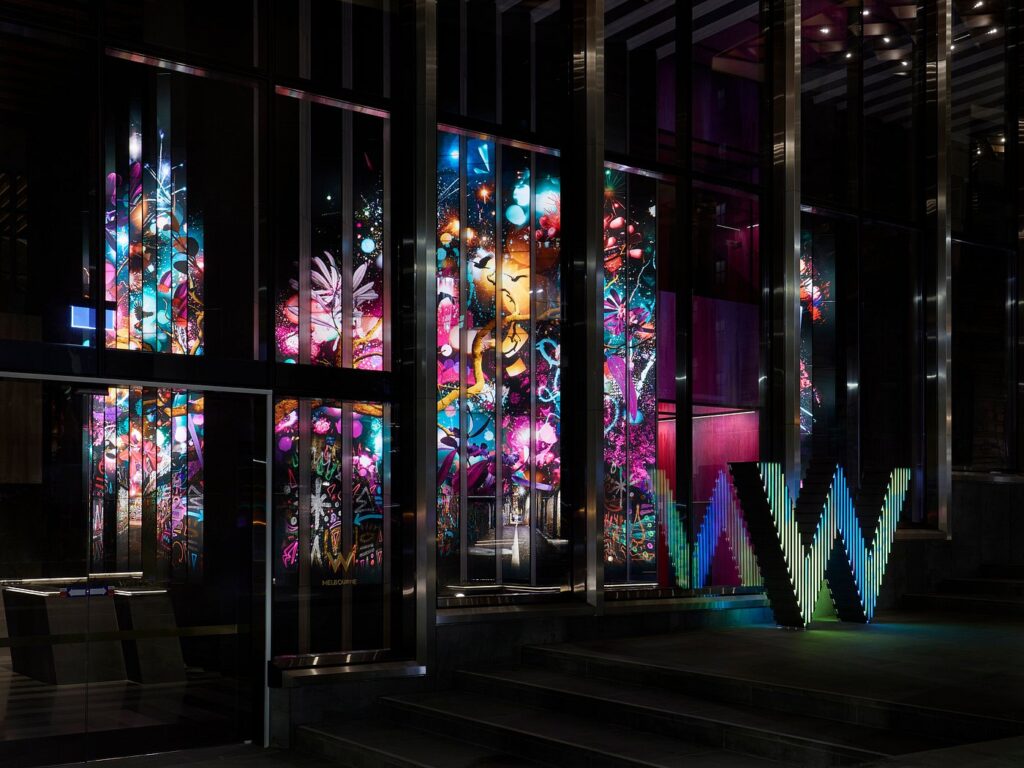
The Backbone of Hotel Technology Trends
Gigabit Passive Optical Networks (GPON)
Underpinning additional investments in technology is a hotel’s network. Where new technology is deployed, a robust and resilient network is required. Typically, when large multi-floor, multi-user networks are designed an ICT Consultant is crucial for ensuring the hotel’s network design is appropriately costed, planned, and delivered to meet the needs of guests and staff.
The most discussed item in recent hotel developments has been the use of a Gigabit Passive Optical Network (GPON). A GPON utilises a single optical fibre to distribute network services across a hotel. The single optical fibre is passively split into multiple optical fibres (typically 16 or 32) within a floor distributor. In our experience, GPON infrastructure can cater to the needs of large hotels and residential buildings with over 300 or more combined rooms. Hotels are investing in GPON because it is:
- Cost-effective
- Provides sufficient end-user bandwidth
- Has future upgrade paths
- Allows for the traffic requirements to enable guest media streaming and web browsing
In new hotel buildings, traditional copper-based horizontal cabling infrastructure is still dominant. However, this dominance can be attributed to the lack of demand for speeds greater than 1GB for each hotel room. Traditional copper-based networks also benefit from UPS and generator-based Power over Ethernet during power outages, ensuring guests can continue to utilise their in-room handset.
Our ICT consultants were involved with a hotel project deploying a hybrid GPON and traditional copper network. The hybrid infrastructure provides guest networks with the features of a GPON network while leaving operator systems on traditional copper. A hybrid approach allows for the benefits of a GPON while using a traditional copper network for hotel operator systems ensures peace of mind by following rock-solid infrastructure standards.
Technology Improving the Guest Experience
Enabling Uninterrupted Connectivity: Carrier Agnostic Distributed Antennae Systems (DAS)
Modern hotel guests expect an uninterrupted wireless connection. However, connection doesn’t just mean with hotel networks and services. Today, the expectation is for guests to be able to utilise services on their mobile devices wherever they are.
The need for constant connections means paying closer attention to a highly important, but often forgotten, piece of technology in the hotel industry. 4G and 5G coverage provided by local telecommunications carriers is key to maintaining high levels of service in hotels. As the number of cellular and 5G devices continues to rise, so too does the requirement for reliable and high-quality cellular connections.
Traditionally, telecommunications carriers design, install and commission a Distributed Antennae System (DAS) within high population density buildings. The DAS ensures adequate signal coverage and strength throughout the building and seamless roaming for the user in and out of the building. However, in our experience, the carriers responsible for delivering the DAS can introduce prohibitively extended delivery timelines and costs. A carrier agnostic DAS combats the additional time and costs by allowing the system to be provisioned without engaging a telecommunications provider.
More of our consultants are using carriers’ standards-based components to design carrier agnostic DAS that can be installed and managed directly by the project design team. Following this, the DAS is contracted to a telecommunications carrier to operate and maintain for the commercial life of the system.
More In-room Options: Agnostic Streaming
A vendor-agnostic streaming service empowers customers to choose and provide their content while being completely platform independent, ensuring:
- Streaming services are flexible and easily upgradeable
- Streaming works across all platforms i.e. iOS, Android, Windows, OSX, and Linux
- Streaming service can easily be adapted to evolving customer standards
- Hotels are not locked into proprietary technology and can deliver content to their users per their standards

Collaboration: Software as a Service (SaaS)
Hotels are also investing in technology to cement their market share of corporate travellers. Hotels often have conference spaces, event spaces, and boardrooms which can be utilised by corporate clients to meet their business needs.
A key technology which facilitates this point of difference is the enabling of collaboration via the rise of cloud-based, Software as a Service (Saas) conferencing solutions. Collaboration technology was once synonymous with fixed hardware, bulky infrastructure, and peaks and troughs in service quality. Today, SaaS collaborative offerings like Zoom.us, Teams, and WebEx are being deployed in hotels with minimal onsite hardware, allowing users to easily and reliably conduct meetings from within the hotel.
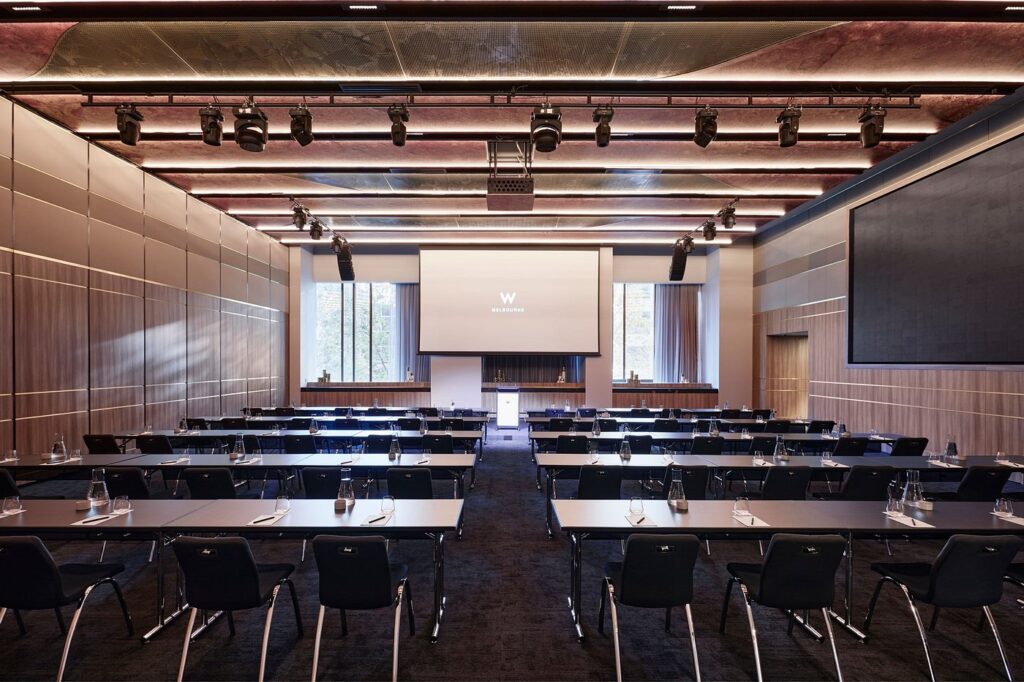
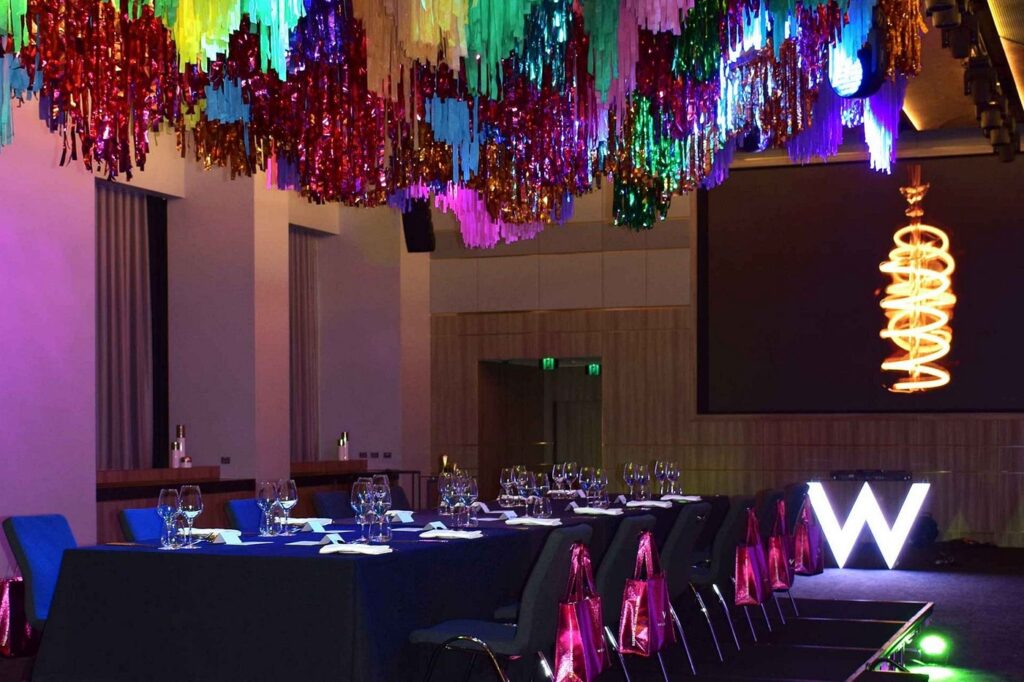
Technology – The Future to your Hotel
The global market for alternative accommodation is extensive, and luxury hotels are doing everything they can to ensure there is a significant point of difference to appeal to travellers and businesspeople alike. A big part of a hotels’ point of difference is the amount of technology deployed across the building to ensure an excellent guest experience.
At UT Consulting, we have extensive experience working within the hotel industry to ensure the latest technologies are deployed. Our team of consultants have recently completed or are currently engaged in the following major luxury hotel developments:
- Seafarers, 731 Flinders St, Docklands
- The Walk Hotel, 325 Bourke St, Melbourne
- Queensbridge Hotel, 90 Queens Bridge Street, Melbourne
- W Hotel – Collins Arch at 447 Collins Street, Melbourne
If you are in the hotel industry or are in the development stage of a new hotel and are starting to consider what is required for the hotel’s AV or ICT technology, feel free to contact us to speak with our team at: +61 3 9601 6555.
